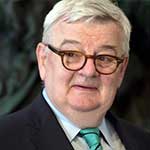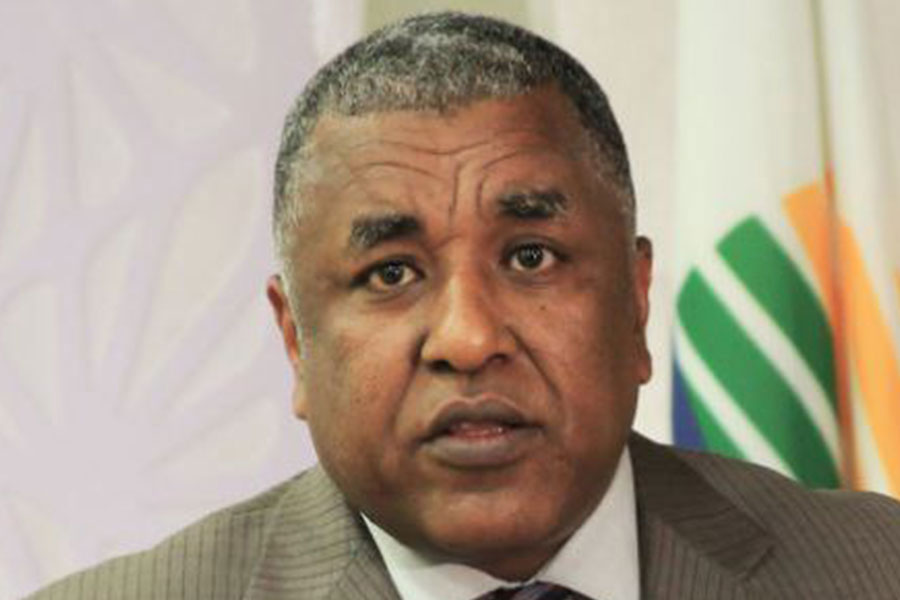
Viewpoints | Jun 17,2023
May 31 , 2020
By Joschka Fischer
Although the Sino-American rivalry was escalating long before the COVID-19 crisis erupted, it has since been thrown into overdrive. But while both countries are pursuing a zero-sum vision of the future, only one is doing so with a long-term strategy, writes Joschka Fischer, Germany's former foreign minister and vice-chancellor.
The COVID-19 pandemic is arguably the first truly global crisis of the 21st century. The only modern historic parallel to the economic disruption triggered by this microscopic pathogen are the world wars of the last century.
The start of World War I in August 1914 not only ended a long period of peace but also suspended an earlier epoch of economic integration and globalisation. As governments around the world pursued new protectionist agendas, economic growth collapsed across the board. A generation later, another world war followed, after which the Cold War began immediately.
The world, and global politics, looked very different at the end of this period of constant conflict and power politics - from 1914 until 1989 - than it did at the beginning. Prior to World War I, the British Empire was the dominant economic and military power. After World War II, it was supplanted by the United States, whose hegemonic position was further strengthened following the collapse of the Soviet Union.
The question, then, is how the distribution of global power will change as a result of the COVID-19 crisis. Whether the pandemic’s impact will be comparable to that of either world war remains to be seen. Clearly, a global economic crisis on this scale will bring serious geopolitical shocks. America, the incumbent superpower, may well cling to its position at the top of the global pecking order. But most signs suggest that China, the emerging superpower, will prevail, inaugurating an East Asian century.
The Sino-American rivalry was shaping up to be the 21st century’s defining hegemonic conflict long before the COVID-19 crisis. Nonetheless, the pandemic, along with election year politics in the US, seems to be amplifying and accelerating the confrontation. For US President Donald Trump, everything is at stake in November’s election. Having mismanaged the pandemic and presided over an unprecedented domestic economic crisis, he needs a scapegoat, and China is the obvious choice.
After all, while most of Trump’s policies have, as a general rule, divided American society, his approach to China is a major exception. In going on the offensive against China, he can count on broad bipartisan support. Even deep into liberal Democratic Party ranks, American attitudes toward China have soured substantially in recent years.
Many US objections are hard to dismiss. The People’s Republic is indeed an authoritarian – even totalitarian – state under the exclusive control of a Leninist party. It has engaged in economic and technological espionage against the US on a grand scale, resorted to unfair trade practices, and violently asserted territorial claims vis-à-vis India, Taiwan, and in the South China Sea. From its persecution of ethnic and religious minorities in Xinjiang and its recent move to consolidate control over Hong Kong to its initial mishandling of the COVID-19 outbreak in Wuhan, China’s government has done little to inspire trust.
Nonetheless, the Trump administration's persistent efforts to repudiate America’s global leadership role raises a fundamental question about its approach: what does the US under Trump want? To lead without taking responsibility?
That is unlikely to work. While the US remains mired in short-term thinking, China is establishing itself as an alternative source of global leadership and investment, patiently pursuing a long-term strategy to exploit the geopolitical vacuum created by America’s inward turn.
In any case, the blow to America’s international image, especially following the Trump administration’s disastrous failure in the face of COVID-19, will be hard to repair. The pandemic is reinforcing the general impression that the US is a decadent superpower, soon to be supplanted by a strategically deft and economically dynamic China. The age-old story of the rise and fall of great powers is now being written by a virus. We can only hope that this chapter plays out peacefully.
Against the backdrop of the Sino-American confrontation, Europe finds itself caught uncomfortably between two opposing geopolitical forces – and left in the dark about America’s true intentions toward China.
Does the US want to pursue containment or all-out confrontation – up to and including military conflict – to block or even reverse China’s ascent?
The second strategy, reprising the West’s approach to China during the late 19th century, would be extremely dangerous, to say the least.
The alternative for the West is to pursue long-term containment on the basis of strategic rivalry. Europe would be well-advised to choose this option. In a Chinese-led world order, Europe, situated at the western end of the Eurasian supercontinent, would be the loser. As a totalitarian one-party state, China can never be a genuine partner to Europe in normative terms. Even after three years of Trump, Europe’s relationship with the US remains much closer than the relationship it could ever expect with China.
But China is already too big, too successful, and too important to ignore. The facts on the ground call for cooperation. The key is to distinguish between strategic engagement with China and submission to it. And maintaining that crucial distinction will require Europe to avoid becoming economically or technologically dependent on the West’s rival.
PUBLISHED ON
May 31,2020 [ VOL
21 , NO
1049]


Viewpoints | Jun 17,2023

Sunday with Eden | Apr 19,2025

Fortune News | Oct 28,2023

My Opinion | Jul 20,2024

Agenda | Apr 20,2019

Viewpoints | Sep 30,2023

Verbatim | Apr 01,2023

Radar | Aug 25,2024

Editorial | Feb 13,2021

Viewpoints | Sep 28,2024

My Opinion | 131974 Views | Aug 14,2021

My Opinion | 128363 Views | Aug 21,2021

My Opinion | 126301 Views | Sep 10,2021

My Opinion | 123917 Views | Aug 07,2021

Dec 22 , 2024 . By TIZITA SHEWAFERAW
Charged with transforming colossal state-owned enterprises into modern and competitiv...

Aug 18 , 2024 . By AKSAH ITALO
Although predictable Yonas Zerihun's job in the ride-hailing service is not immune to...

Jul 28 , 2024 . By TIZITA SHEWAFERAW
Unhabitual, perhaps too many, Samuel Gebreyohannes, 38, used to occasionally enjoy a couple of beers at breakfast. However, he recently swit...

Jul 13 , 2024 . By AKSAH ITALO
Investors who rely on tractors, trucks, and field vehicles for commuting, transporting commodities, and f...

Jul 5 , 2025
Six years ago, Ethiopia was the darling of international liberal commentators. A year...

Jun 28 , 2025
Meseret Damtie, the assertive auditor general, has never been shy about naming names...

Jun 21 , 2025
A well-worn adage says, “Budget is not destiny, but it is direction.” Examining t...

Jun 14 , 2025
Yet again, the Horn of Africa is bracing for trouble. A region already frayed by wars...

Jul 6 , 2025 . By BEZAWIT HULUAGER
The federal legislature gave Prime Minister Abiy Ahmed (PhD) what he wanted: a 1.9 tr...

Jul 6 , 2025 . By YITBAREK GETACHEW
In a city rising skyward at breakneck speed, a reckoning has arrived. Authorities in...

Jul 6 , 2025 . By NAHOM AYELE
A landmark directive from the Ministry of Finance signals a paradigm shift in the cou...

Jul 6 , 2025 . By NAHOM AYELE
Awash Bank has announced plans to establish a dedicated investment banking subsidiary...